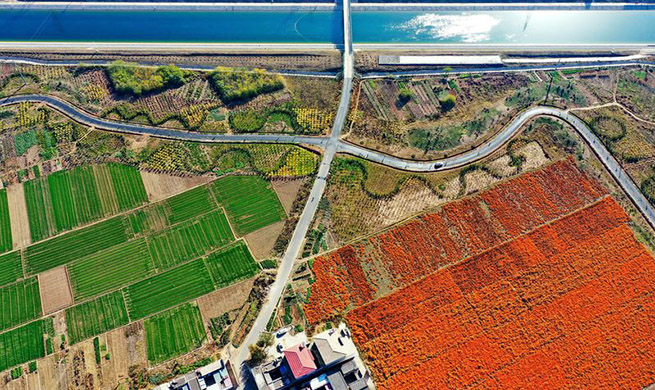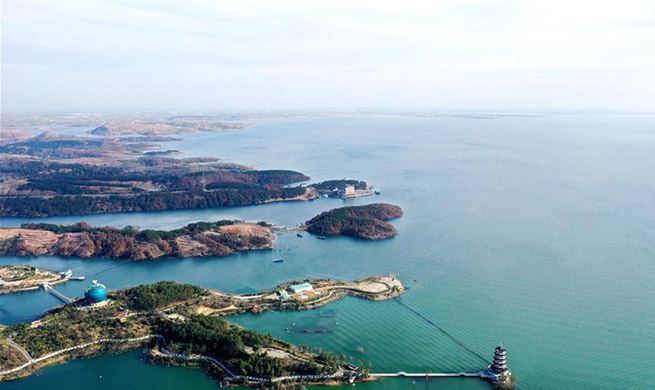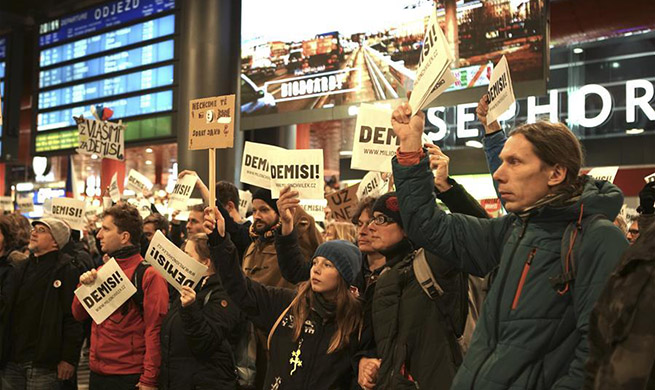MADRID, Dec. 11 (Xinhua) -- The head of Chinese delegation to the ongoing UN Climate Change Conference (COP25) on Wednesday called for unswerving implementation of the 2015 Paris Agreement and safeguarding multilateralism.
In an interview with Xinhua, Zhao Yingmin, who's also vice minister of China's Ministry of Ecology and Environment, said that facing the challenge of climate change, no country can address it alone. All countries need to work together and strengthen their efforts.
As the head of the Chinese delegation to the COP25, Zhao attended the high-level segment COP25 on Tuesday and delivered a speech. He said the priority of all parties taking part in the conference is to completely and precisely understand the goal stipulated in Paris Agreement, and focus on the implementation of the Agreement, based on the principles including the Common but Differentiated Responsibilities.
All parties should also jointly oppose all kinds of unilateral acts and trade protectionism, in a bid to safeguard the world's joint efforts to address climate change, according to Zhao.
Zhao added that both UN Secretary-General Antonio Guterres and Carolina Schmidt, chairwoman of COP25 and Chilean environment minister, have noted the importance of completing negotiations on the Article 6 of Paris Agreement as quickly as possible, believing that would facilitate the development and operation of the carbon emission market.
"Paris Agreement is the valuable fruit of multilateralism. All parties need to work hard to finish the negotiations on the remaining details of implementation, especially Article 6. It is the core mission of this congress," said Zhao.
As a market mechanism, Carbon emission trading could effectively reduce costs for emission cut, help achieve the goal for greenhouse gas emission control, and promote technological and industrial upgrading, according to Zhao.
"China attaches great importance to addressing climate change through market mechanisms. And building a national market for carbon emission rights trading is an important measure taken by the government to actively deal with the climate change and promote the construction of ecological civilization."
China launched the pilot carbon trading markets in seven provincial regions including capital Beijing in 2011. Since then, sound and distinctive regional carbon markets have been established, according to China's Ministry of Ecology and Environment.
Official statistics show that up to the end of October 2019, a total of 347 million tons of carbon dioxide equivalence had been traded in pilot region markets, with an aggregate trading volume of 7.68 billion yuan (1.09 billion U.S. dollars). The projects helped reduce the aggregate emission volume and the carbon intensity in those regions.
Zhao said developing countries have repeatedly called for progress in funding. As the Paris Agreement is set to be implemented soon, the lack of financial support from developed countries to developing countries has become a prominent issue.
Zhao added that the congress should clearly sort out the gaps of developed countries in terms of emission reduction efforts and support for developing countries before 2020, make arrangements for closing the gaps to avoid passing on the burdens to developing countries after 2020.
"Developed countries' support should match the efforts taken by developing countries," said Zhao.
Besides climate change mitigation, China also attaches importance to climate change adaptation, said Zhao, adding that since 2013 when China issued a national strategy for climate change adaptation, the country has published a series of policies and initiated pilot city projects for climate change adaptation.
As the world's biggest developing country, China has arduous work for economic development, poverty eradication and improving the people's livelihood, said the Chinese official.
"China will try hard to overcome the problems and difficulties originated by unilateralism and protectionism, unswervingly carry out the national strategy addressing climate change and fulfill its commitments, in a bid to make contributions to the construction of the global ecological civilization and the community with shared future for mankind," said Zhao.

















